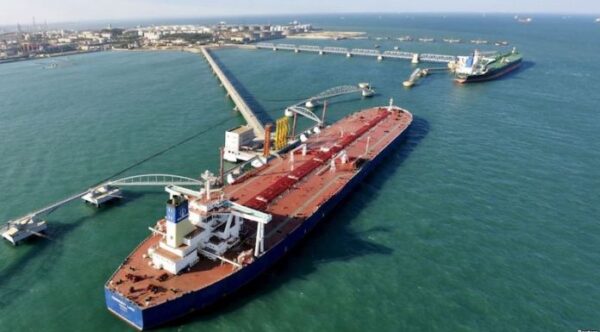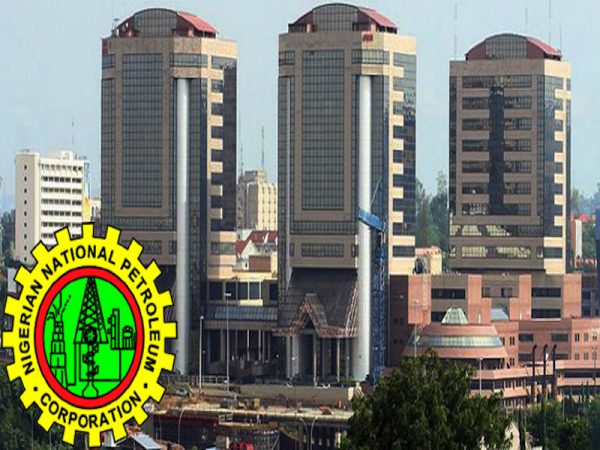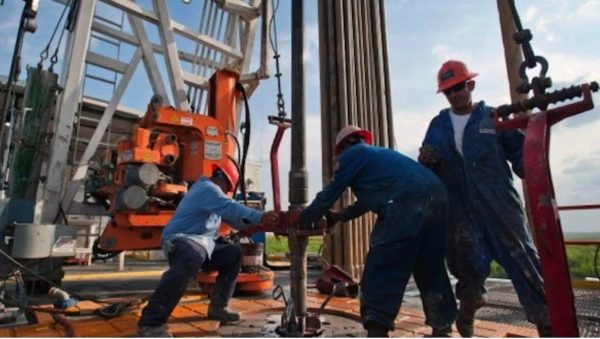Experts Kick As PIB Restricts Petroleum Product Import To Refinery Owners
 • Loopholes unsettle operators as PIB harmonisation committee meets today
• Loopholes unsettle operators as PIB harmonisation committee meets today
• Concerns rise over looming duopoly on importation of petrol, diesel, others
• OPEC hails Nigeria as a great consensus builder 50 years after joining body
Discordant voices yesterday hit harder in the nation’s oil and gas industry following indications that the National Assembly will, today, harmonise the Petroleum Industry Bill (PIB) ahead of a possible passage latest on Wednesday before the two chambers proceed on recess come Thursday.
Although the progress was expected to excite industry players and stakeholders, prevailing loopholes and new clauses allegedly framed into the bill continue to set fear in the minds of stakeholders, a development, which may erode projected benefits in the nation’s most critical economic sector.
The Senate and the House of Representatives last Thursday set up conference committees to harmonise both versions of the PIB. The committees are expected to meet today while the harmonised version is also expected to be passed by both chambers before the lawmakers proceed on their yearly break.
This development is coming 50 years after Nigeria joined the Organisation of the Petroleum Exporting Countries (OPEC), raising concerns about the country’s fiscal environment.
Nigeria is consistently regarded as one of the most admired and respected members of the OPEC family, particularly in the realm of consensus-building, but its capacity to take advantage of rise in oil prices remains undermined by subsidy and local production challenges.
After 22 years of unbroken democracy amid revenue losses estimated at about $200 billion, the National Assembly had two weeks ago, passed the bill amid rancor and stern opposition from various sections of the country and the industry.
While a 30 per cent revenue allocation to development of frontier inland basin mainly in the North as well as dismal allocation to host communities fuel opposition, concerns over possible ban or duopoly in the downstream sector and a 10 per cent management fee, issues of Production Sharing Contract (PSC) as well as Joint Venture obligations have set the industry apart.
Also, Senate’s decision to award just three per cent to oil-bearing communities may not be the only controversial clause in the PIB, as a closer check has shown that the upper chamber provided that petroleum products can only be imported by refinery owners in Nigeria. While the bill expectedly removed price controls on petroleum products, the Senate version of the bill has a clause that constrains market competition by restricting the importation of products to only players with local refining capacity.
The government had been waiting for the Bill to ease the burden of petrol subsidy, but the decision by the Senate to impose restrictions on what is supposed to be a deregulated downstream sector is raising eyebrows among experts, who are calling for the provisions to be expunged. With the new scenario, it may become illegal for most marketers to import petroleum products, including already deregulated products, especially PMS, diesel, aviation fuel, lubricants and base oil unless they have licence for a refinery.
Stated in Section 317(8) of the Senate version of the bill, “The Authority shall apply the Backward Integration Policy in the downstream petroleum sector to encourage investment in local refining. To support this, licence to import any product shortfalls shall be assigned only to companies with active local refining licences. Import volume to be allocated between participants based on their respective production in the preceding quarter.
“Such import to be done under NNPC Limited Direct Sale/Direct Purchase (DSDP) scheme. To safeguard the health of Nigerians, imported petroleum products shall conform to the Afri-5 specification (50ppm sulphur) as per the ECOWAS declaration of February 2020 on adoption of the Afri-Fuels Roadmap.”
Some industry stakeholders, who spoke with The Guardian noted that the development, though encourages local development, may force existing players out of the market leaving a monopolistic market for the national oil company and big refiners.
Speaking on the condition of anonymity, a respected industry player said unless the clause is removed, there may not be a level playing field in the industry. “As price control is being removed, supply must be competitive, inclusive, transparent and seen to encourage efficiency,” he stated.
Former President of the Society of Petroleum Engineers Nigerian Council, Joseph Nwakwue, expressed concern that the provisions would create a duopoly in a price deregulated environment, thereby, destroying the Nigerian downstream industry.
According to him, “in the near term, only NNPC and Dangote will have domestic refining capacity for PMS for instance, so they will be the only importers. This takes the industry back and could not have been the intention of the Bill.
“Moving from a state-owned monopoly in a price regulated market to a duopoly in a price deregulated market is not what Nigeria needs now as it takes the industry backward and exposes Nigerians to exploitation and further hardship. This, in my humble view, is not reformatory.”
He pointed out that “rather than seek to protect refiners, we should seek to protect consumers by liberalising and expanding petroleum product supply sources. That is the only way prices will be ‘market-determined’ and consumers made to pay fair value for the products they buy. The viability of local refining is not determined or enhanced by locking out competition, it is rather achieved through price deregulation, which has been done in Section 205. This clause gives statutory unfair advantage to private players rather than through market competition,” he added.
Professor of Law and Director, Institute for Oil, Gas, Energy, Environment and Sustainable Development (OGEES Institute), Afe Babalola University, Damilola Olawuyi, said matters of environmental justice could be threatened if the Bill is passed.
According to him, rotational fund may not grant environmental justice in pollution-impacted communities, stressing that unless there is anticipatory approach that integrates human rights impacts assessment into the project approval processes, so as to ensure that petroleum operations do not adversely impact the social, economic and political rights of local communities, projected objective may remain elusive.
“I would, therefore, like to see the introduction of a detailed business and human rights regulation under the new law, which will clearly and comprehensively spell out what responsible business enterprises should do to anticipate, mitigate and redress human rights and environmental harm in their operations,” Olawuyi said.
He also faulted the establishment of “too many institutions as contemplated under the bill,” noting that it could result in procedural challenges and red-tape in decision-making processes.
Renowned scholar and a Professor of Energy Economics, Wunmi Iledare, told The Guardian that the capacity in the Ministry of Petroleum under the Bill may not support the functions of the Office of the Minister, adding that the ministry needs a reconfiguration, restructuring and rebounding to support the PIB demand for policy sustainability beyond a one term Minister in office.
“The Bill seems to have settled for two regulatory institutions and I like the fact that some coordination among the institutions are envisaged, but I do not see where it is mandated. A mandatory coordination section may be appropriate. I also think the Board of the Authority, geo-political fulfillment beyond qualifications seems like jobs for the ‘boys,’” Iledare said.
Regarding administration, he noted that the size of oil blocks, especially onshore block area of 350 square km is about 18 times the 5,800 acre-size in the US GOM and shallow water is about 45 times higher, while the deep water block is about 60 times.
“The expected voluntary conversion clause impact has been significantly reduced with events prior to the passage of the bill. The rush of the so many uninformed renewals, renders the PIB less impacting on old leases. The renewal of terms as this passage was on course remains shocking,” Iledare said.
He also kicked against loopholes in JV funding, stressing that government should have used reform to exit the programme. Iledare said: “There is too much government involvement more than 60 years after oil was first discovered. The issues are beyond governance, regulatory, and administration control.”
Another energy expert, Ademola Adigun, pointed out that governments all over the world “do not create and encourage monopolies or duopolies and that is why anti-trust laws are enacted and enforced to protect industries and consumers. Nigeria should not be doing the reverse. A case can always be made about protectionist policies for nascent or pioneer industries, but this is not the case with a long-established, once-thriving Nigerian downstream sector.
“This clause needs to be expunged from the PIB. The downstream regulator – Authority should be left to develop regulations that are fair, inclusive and transparent for petroleum product importation that ensures open and diverse market supply and hence competition, only then would the objectives of the bill be achieved.”







